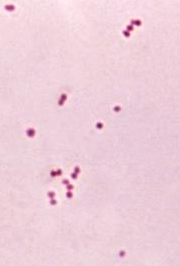The University of Oregon was notified that a student was diagnosed with Neisseria meningococcemia on Tuesday, February 3, 2015. Meningococcal disease is a serious bacterial illness that includes bloodstream infection (meningococcemia) and/or infection of the membranes surrounding the brain and spinal cord (meningitis).

Image/CDC
This is the second case of meningococcemia at University of Oregon this year. The first case was reported in mid January.
University of Oregon staff members have been working closely with Lane County Public Health officials to identify individuals who may have had extended exposure to the patient. According to Lane County Public Health, the risk of transmission is considered to be quite low. In order for the illness to spread, a person would need to have close contact with the patient for four hours or more over the past seven days.
The University has identified specific individuals who may have had extended exposure to the patient. Those who have had close contact of at least 4 hours cumulatively within one week are being provided with a preventative medication to further reduce their risk of becoming ill.
Lane County health officials say while people with meningococcemia have the potential of infecting others, the bacteria cannot live for more than a few minutes outside the body, so the disease is not spread as easily as the common cold or influenza. Many people carry the bacteria in their body and are never affected because their immune system prevents the disease from making them ill. The disease is transmitted through respiratory droplets. Typically, extended face-to-face contact for an extended time (at least 4 hours cumulatively within one week), or coming into contact with saliva through kissing or sharing cups and utensils is necessary to infect others.
Neisseria meningococcemia is preventable with prophylactic medication. Please seek medical attention as soon as possible to decrease your risk of contracting the illness.
If you have an unexplained fever, headache or neck pain, please seek medical attention immediately.

